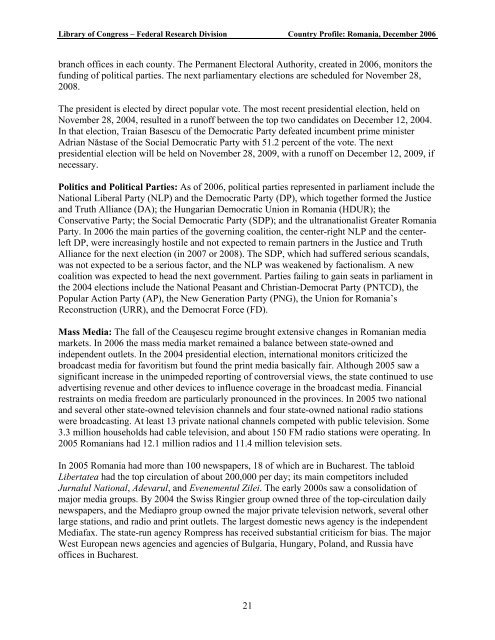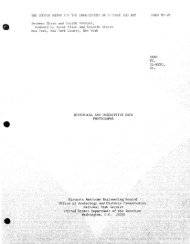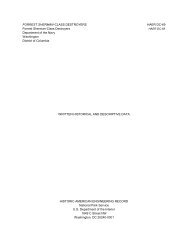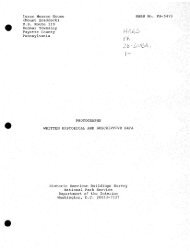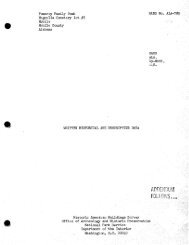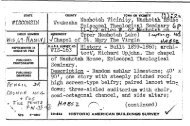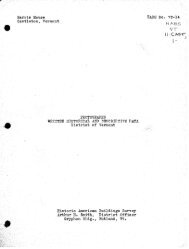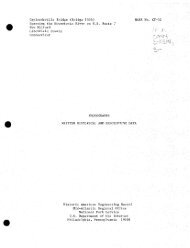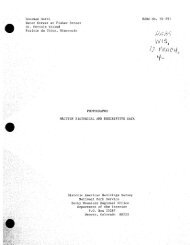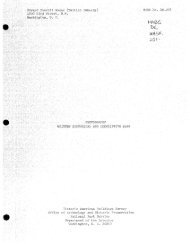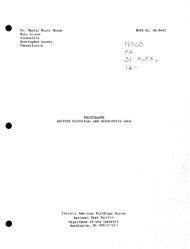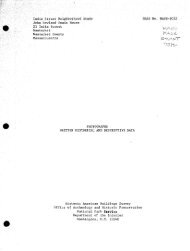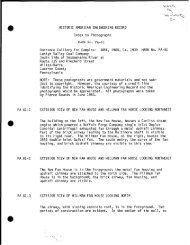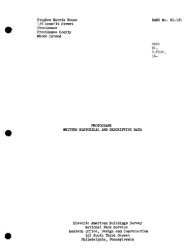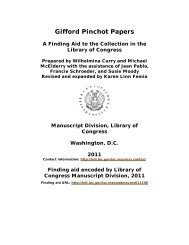Country Profile: Romania - Library of Congress
Country Profile: Romania - Library of Congress
Country Profile: Romania - Library of Congress
Create successful ePaper yourself
Turn your PDF publications into a flip-book with our unique Google optimized e-Paper software.
<strong>Library</strong> <strong>of</strong> <strong>Congress</strong> – Federal Research Division <strong>Country</strong> <strong>Pr<strong>of</strong>ile</strong>: <strong>Romania</strong>, December 2006<br />
branch <strong>of</strong>fices in each county. The Permanent Electoral Authority, created in 2006, monitors the<br />
funding <strong>of</strong> political parties. The next parliamentary elections are scheduled for November 28,<br />
2008.<br />
The president is elected by direct popular vote. The most recent presidential election, held on<br />
November 28, 2004, resulted in a run<strong>of</strong>f between the top two candidates on December 12, 2004.<br />
In that election, Traian Basescu <strong>of</strong> the Democratic Party defeated incumbent prime minister<br />
Adrian Năstase <strong>of</strong> the Social Democratic Party with 51.2 percent <strong>of</strong> the vote. The next<br />
presidential election will be held on November 28, 2009, with a run<strong>of</strong>f on December 12, 2009, if<br />
necessary.<br />
Politics and Political Parties: As <strong>of</strong> 2006, political parties represented in parliament include the<br />
National Liberal Party (NLP) and the Democratic Party (DP), which together formed the Justice<br />
and Truth Alliance (DA); the Hungarian Democratic Union in <strong>Romania</strong> (HDUR); the<br />
Conservative Party; the Social Democratic Party (SDP); and the ultranationalist Greater <strong>Romania</strong><br />
Party. In 2006 the main parties <strong>of</strong> the governing coalition, the center-right NLP and the centerleft<br />
DP, were increasingly hostile and not expected to remain partners in the Justice and Truth<br />
Alliance for the next election (in 2007 or 2008). The SDP, which had suffered serious scandals,<br />
was not expected to be a serious factor, and the NLP was weakened by factionalism. A new<br />
coalition was expected to head the next government. Parties failing to gain seats in parliament in<br />
the 2004 elections include the National Peasant and Christian-Democrat Party (PNTCD), the<br />
Popular Action Party (AP), the New Generation Party (PNG), the Union for <strong>Romania</strong>’s<br />
Reconstruction (URR), and the Democrat Force (FD).<br />
Mass Media: The fall <strong>of</strong> the Ceauşescu regime brought extensive changes in <strong>Romania</strong>n media<br />
markets. In 2006 the mass media market remained a balance between state-owned and<br />
independent outlets. In the 2004 presidential election, international monitors criticized the<br />
broadcast media for favoritism but found the print media basically fair. Although 2005 saw a<br />
significant increase in the unimpeded reporting <strong>of</strong> controversial views, the state continued to use<br />
advertising revenue and other devices to influence coverage in the broadcast media. Financial<br />
restraints on media freedom are particularly pronounced in the provinces. In 2005 two national<br />
and several other state-owned television channels and four state-owned national radio stations<br />
were broadcasting. At least 13 private national channels competed with public television. Some<br />
3.3 million households had cable television, and about 150 FM radio stations were operating. In<br />
2005 <strong>Romania</strong>ns had 12.1 million radios and 11.4 million television sets.<br />
In 2005 <strong>Romania</strong> had more than 100 newspapers, 18 <strong>of</strong> which are in Bucharest. The tabloid<br />
Libertatea had the top circulation <strong>of</strong> about 200,000 per day; its main competitors included<br />
Jurnalul National, Adevarul, and Evenementul Zilei. The early 2000s saw a consolidation <strong>of</strong><br />
major media groups. By 2004 the Swiss Ringier group owned three <strong>of</strong> the top-circulation daily<br />
newspapers, and the Mediapro group owned the major private television network, several other<br />
large stations, and radio and print outlets. The largest domestic news agency is the independent<br />
Mediafax. The state-run agency Rompress has received substantial criticism for bias. The major<br />
West European news agencies and agencies <strong>of</strong> Bulgaria, Hungary, Poland, and Russia have<br />
<strong>of</strong>fices in Bucharest.<br />
21


